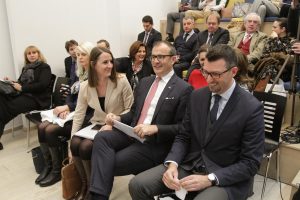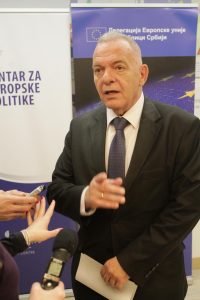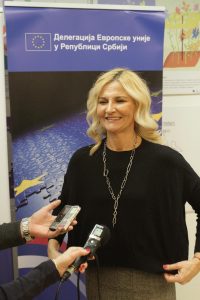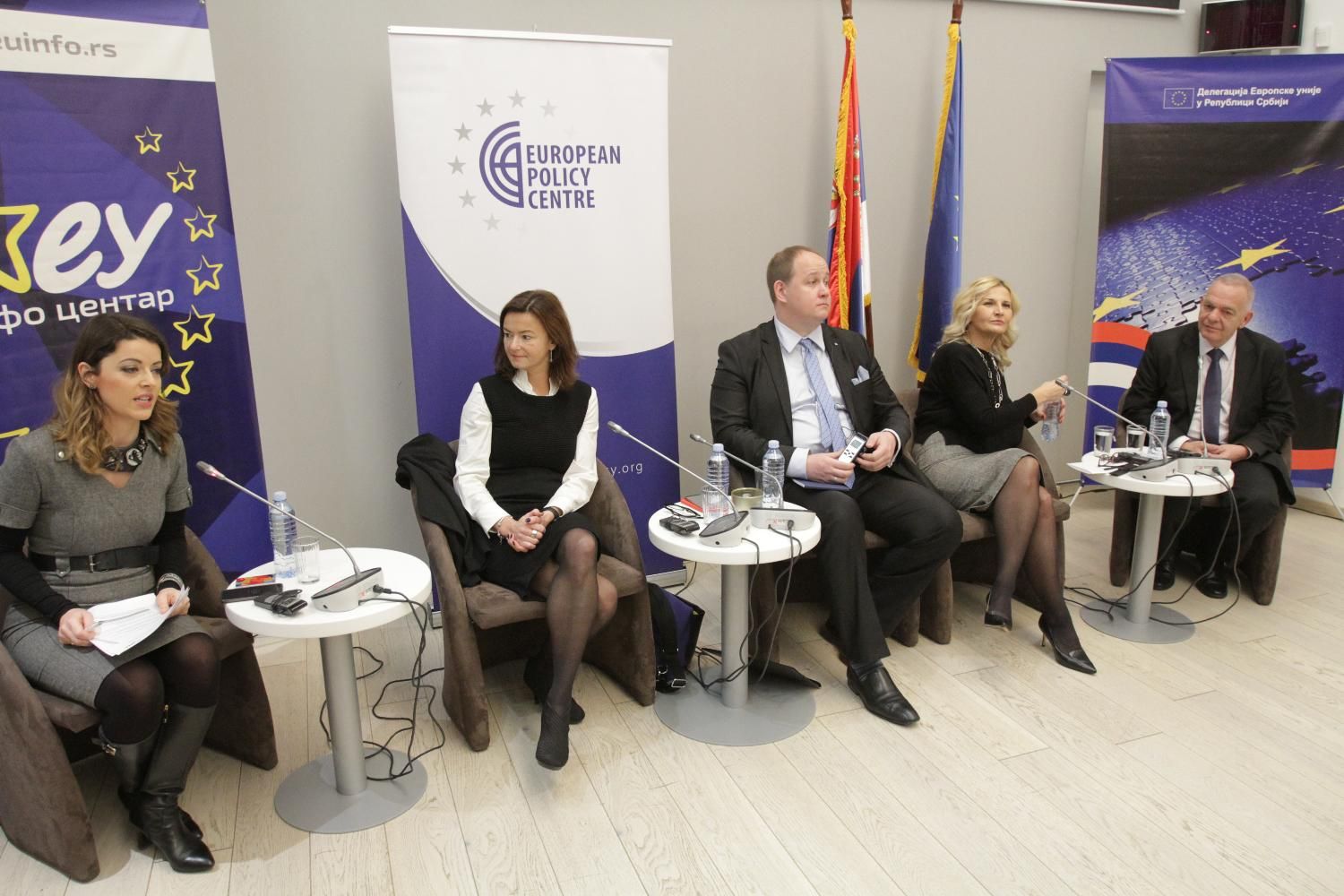Head of the EU Delegation to Serbia Sem Fabrizi said today that political and technical conditions for progress of the countries in the region toward the EU had been created, adding that early February 2018 will bring the Enlargement Strategy for the Western Balkans that will relay a clear message from the EU to the region.
Speaking at the event “From Estonian to Bulgarian EU Presidency – New momentum for enlargement policy?” organised by the European Policy Centre, Fabrizi said that the first half of 2018 is expected to yield results thanks to enlargement momentum present in both Brussels and Sofia.

Fonet
We are already working toward enlargement and Serbia has made many breakthroughs in that regard. In April, the European Commission will publish a detailed report on Serbia’s progress in the process of European integration, he said.
We expect important political decisions to be made during both the EU28-WB6 summit, taking place in Sofia, and EU’s own summit scheduled for May and June, respectively, Fabrizi announced.
It is a joint exercise aimed at turning the existing political momentum into a success over the next six months, not only on paper, but here, on the ground, Ambassador said.
European Parliament Member Tanja Fajon said that as 2017 draws to an end, she tends to look at 2018 with optimism when it comes to EU enlargement.
The question is whether you will seize this opportunity, she said. From our side, we expect a positive development.
I know expectations will be high, but I am optimistic. We are waiting for the Enlargement Strategy and reports on enlargement countries to be published. Numerous meetings are being convened and we have put our focus on the region because we want to make the most of our presence, not to lose optimism, she said.
We need to work together, to trust each other, because this region has been and always will be a part of Europe, Fajon said.
Estonian Ambassador to Serbia Daniel Erik Schaer said he was happy with the fact that Serbia had opened two negotiating chapters during Estonian Presidency and, by doing so, managed maintain the European integration momentum.
During our Presidency, European Commission President Jean-Claude Juncker held a rather important speech on the state of the EU, while EU High Representative Federica Mogherini remained active and drew EU’s attention back to the Western Balkans, Schaer said.
Estonia has always been supportive of EU’s enlargement process, granted that the acquis is adopted and standards met, Estonian Ambassador noted.

Fonet
Bulgarian Ambassador to Serbia Radko Vlajkov noted that Bulgaria would be taking over the EU Presidency for the first time since it joined the EU ten years ago.
We are passing the torch to Austria, followed by Romania and Croatia, he said. Enlargement, especially when it comes to Serbia, will remain on the agenda during the entire period, he said.
We believe the coming period to be decisive, he said. I think everything will be up to politicians and citizens. The door is wide open, you’re welcome; implement the necessary reform and it will be our pleasure to have you in the EU, Vlajkov said.
Head of Serbia’s EU negotiating team Tanja Miscevic said that an important period in EU’s development is on the horizon, the period that will put emphasis on the enlargement policy.
I expect Bulgarian Presidency to deliver on many things, she said. We are already working together to determine which chapters are ready for opening. We also expect a strategy that would speed up the accession talks; I call it “Juncker’s Strategy,” one in which the European Commission would acknowledge the progress made by certain countries, Miscevic noted.

Fonet
Once the Strategy is published, she added, we expect an enlargement package to be adopted as well, including a progress report in April as it has not been published nearly a year and a half.
In May, Miscevic said, we will have a major summit between the EU and the Western Balkans. It will supply us with renewed energy, she added.
This means we will have to roll up our sleeves and double down our efforts, that is, to put focus on chapters 23 and 24, intensify implementation and review our action plans, Miscevic said.
Speaking about action plans review, Miscevic said that the review talks have only just begun, stressing that the review is not only about deadlines, but content as well.
At the moment, there are many unanswered questions in our talks with the European Commission. It will take some more time, but 2018 will for sure bring change in action plans along with their implementation, she said, adding that the process will require cooperation with civil society.
Chairman of the European Policy Centre Management Board Srdjan Majstorovic said that Serbia could have opened more than six chapters in 2017, if it had met certain conditions regarding the rule of law and democratization.
2017 will go down in history as the year the EU put enlargement back at the top of its priorities. Once Juncker had mentioned it, the EU started to define a possible time frame for accession of the Western Balkan countries, Serbia and Montenegro in particular, Majstorovic recalled.
Majstorovic said he believed the Enlargement Strategy would put focus on credibility.
Credibility will be the key word in the coming year as the Strategy will bring forward certain proposals for economic development of the countries in the region in order to gradually make it a part of the wider European space, he said, adding that the document will ask candidate countries for credibility.
The Strategy will ask of candidate countries to speed up the reforms, strengthen democratic principles, independent institutions and the Parliament, as well as to enhance the rule of law, implement justice reform, to step up fight against corruption and improve media freedom, Majstorovic said.




